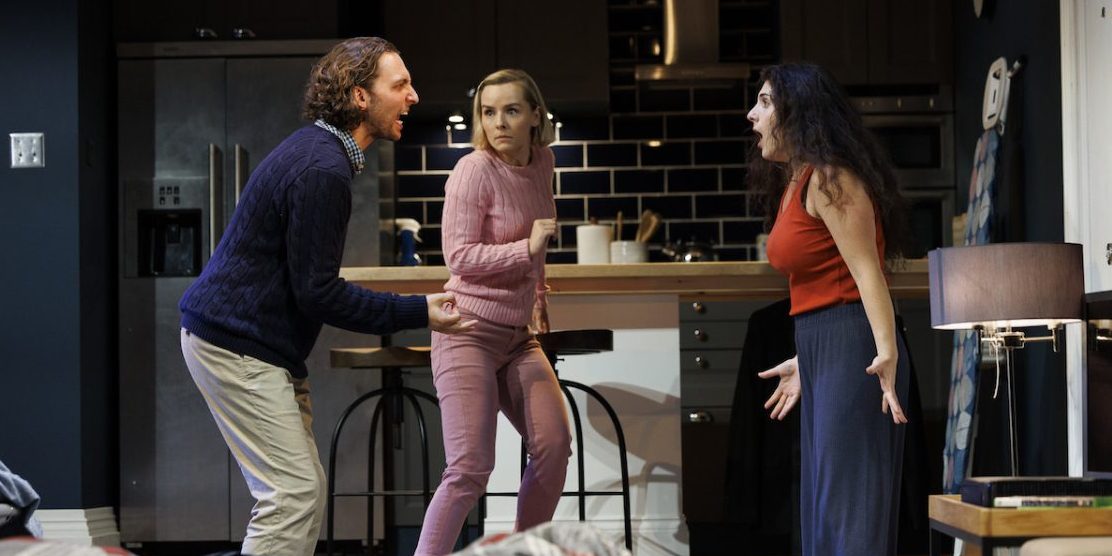Bad Jews make good theatre, apparently. Joshua Harmon’s comedy of (ill) manners, beliefs, and conflicts may look and sound at times like a shouting match, oy vey, but let’s face it – such witty and hilarious shouts were not heard in the West End, well, since the last staging of Bad Jews, a few years ago. This brilliant production is based on the original direction by Michael Longhurst. But the assured work of director Jon Pashley and the phenomenal performances of the cast, offer a fresh and singular experience.
I had quite a few reservations about the original world premiere of the play, which I saw in New York, ten years ago. My main concern was the two female characters (the other two are male), and especially the character of Daphna Feygenbaum’s. They seemed to me like grotesque caricatures, both in the writing and the acting, bordering on pure misogyny, which made the whole thing sourly disturbing.
It’s a huge relief to report that in this sharp and delicious production, every character gets the depth and the rich inner life it deserves, and whatever its flaws are, they are all human. Even the potentially unbearable Daphna (Rosie Yadid), becomes bearable (and almost lovable) suddenly. Her cousin Liam (Ashley Margolis) despises her. He even claims she’s not a real Daphna, but a Diana who reinvents herself as an honorary Israeli, out of a weird (and temporary, in his opinion) obsession. Liam brings his gentile (shiksa) girlfriend, Melody (Olivia Le Andersen) to the shivah of his grandfather (“poppy”), after managing to miss the actual funeral (a long and funny story). Daphna doesn’t like that. Daphna doesn’t like most things, and nobody likes Daphna. She claims that Liam makes a habit of dating shiksas that are obviously intellectually inferior to him. Melody is clearly not a genius, and her self-awareness is hardly tuned (in one scene, almost too painful to watch, she demonstrates her non-existent operatic talent), but Le Andersen (lovely in pink – kudos to the costume designer, Richard Kent) makes her endearing and beautifully vulnerable.
The main plot revolves around a “Chai” necklace of the newly deceased poppy, that comes with a jaw-dropping holocaust story. Daphna believes she ought to inherit it, being not just a “good Jew” but the best Jew in the room (properly claustrophobic, also designed by Kent), but Liam wants to propose to Melody with it. A family war ensues, and there will be blood. Margolis as Liam acts angry like no one since John Cleese in “Fawlty Towers”. He’s a riot. Charlie Beaven is excellent in the difficult role of his introverted younger brother, Jonah, who doesn’t want to be involved, and hides a shocking secret under his sleeve (literally). As the villainess of the evening, who preaches to everyone about being loyal to one’s religious origins in a crumbling, hostile world and sticking to values and symbols that lost their meaning years ago, and makes some really interesting points along the way, in virtuosic monologues that are as long as the bible but way funnier, Yadid is simply amazing. Without a horrible wig like in previous productions (but still with unshaved armpits, totally unnecessary), this Daphna is not made to look “ugly” and overcomes her bad traits in order to expose a lonely, wounded soul.
After all the laughter there are heavy questions left to deal with, about the importance of our background and the reasons we often try to escape it. And that’s just the bonus of a great evening in the theatre.

